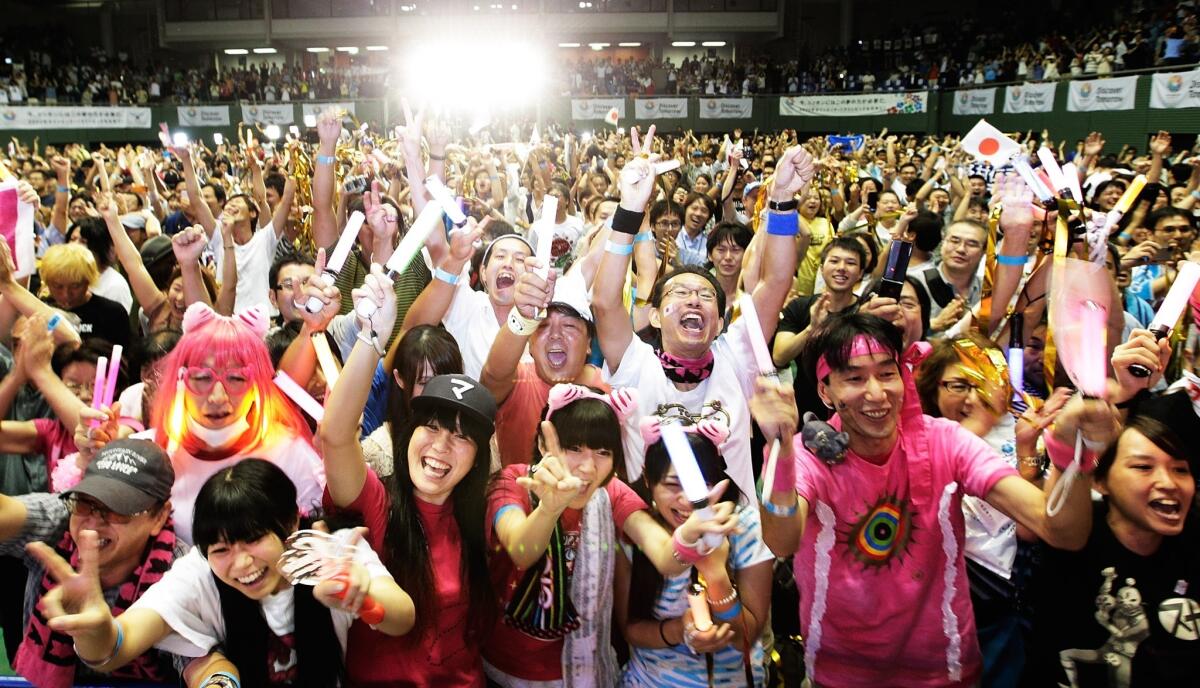Tokyo chosen to host 2020 Summer Olympics

- Share via
Amid concerns about the Fukushima nuclear crisis, the International Olympic Committee voted Saturday to select Tokyo as the host city for the 2020 Summer Games.
The capital city outdistanced two other finalists — Istanbul and Madrid — as Japanese officials vowed that radioactive leaks would have no effect on the Games.
“In the end it was Tokyo’s bid that resonated the most with the IOC membership,” President Jacques Rogge said in a statement, predicting “a well-organized and safe Games.”
In sports terms, the choice of another “repeat” city — after London in 2012 — could have ramifications on a potential 2024 bid from the U.S. Specifically, Los Angeles officials have expressed interest in bringing the Games back for a third time.
“I think everyone from the IOC expects a good bid from the United States,” Sergey Bubka, an IOC member and former pole vaulter, said before Saturday’s vote.
“It’s good to hear that Los Angeles wants to be involved,” he added. “It’s a big city with a big sports history.”
The same could be said for Tokyo, which was considered the leading candidate heading into this weekend.
Bid representatives knew they had to address reports that hundreds of tons of contaminated water have leaked from the Fukushima nuclear plant since the March 2011 earthquake and tsunami that caused meltdowns in reactors there.
“Let me assure you the situation is under control,” Japanese Prime Minister Shinzo Abe told the IOC, according to the Associated Press. “It has never done and will never do any damage to Tokyo.”
Abe must have persuaded IOC members. And with the upcoming 2016 Rio de Janeiro Games beset by reports of protests and delays, Tokyo might have looked reassuring as a city that successfully hosted the 1964 Summer Games.
The Japanese contingent cheered and waved flags when Rogge made the announcement in Buenos Aires.
“Tokyo presented a very strong technical bid from the outset,” the IOC president said.
Madrid was seen as the most economical option but was eliminated in a close tiebreaker during the first round of voting. Istanbul would have offered the Olympic movement more traction in the Islamic world but lost by a 60-36 vote in the second round.
No American city has hosted the Summer Olympics since Atlanta in 1996. The IOC and U.S. spent much of the last decade bumping heads over revenue sharing.
The U.S. Olympic Committee had traditionally received a significant portion of IOC revenue that flowed in from American broadcasters and sponsors. Other IOC countries began to resent the split.
After New York and Chicago suffered painful defeats in their recent bid campaigns, the USOC negotiated a new deal, surrendering a portion of its share.
U.S. Olympic officials have also become more active internationally, holding meetings with foreign sports officials and hosting conferences and meetings.
“For many years, the USOC thought we should focus mainly on the Olympic Games,” said Anita DeFrantz, an IOC member from Los Angeles. “We have done so much more than we used to.”
With 2020 just decided, the bid process for 2024 has a long way to go. The USOC will not submit an American bid until 2015, with the IOC decision scheduled for two years after that.
Twitter: @LATimesWharton
More to Read
Go beyond the scoreboard
Get the latest on L.A.'s teams in the daily Sports Report newsletter.
You may occasionally receive promotional content from the Los Angeles Times.











